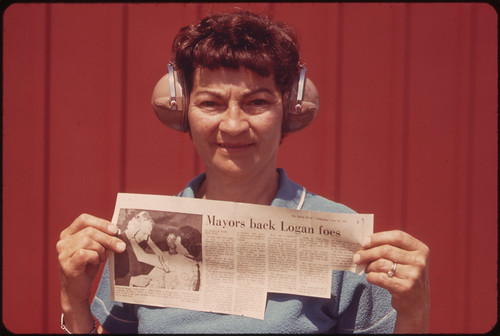Okay, I’ll admit it. Voting in the primary of the opposite party (a possibility denied me in my home state of West Virginia but available in Virginia where I now live) has a certain appeal. The chance to vote for the candidate least likely to defeat my candidate in the general election invites a feeling of Machiavellian anticipation and glee.
And even though ethics and love of God should stop me even thinking such things, the real choke hold that stays my hand (if not my conscience) is the question, “what if he wins?” What if the one I like the least as a political leader would actually be victorious because of our collective efforts to manipulate elections in such a way?
The law of unintended consequences is, in my view, one of the most under-recognized truths when it comes to dealing with the affairs of state.
We cannot know everything now, let alone anticipate everything in the then of our futures.
A corollary to the calculus which disregards the problems of the present in favor of the possibility of a favorable outcome in the future is the notion of the greatest good for the greatest number.
As a Christian, that idea should have been put to final rest with the words of Caiphas in John 11.50, speaking of Jesus, “You do not realize that it is better for you that one man die for the people than that the whole nation perish.” (NIV)
While Christians have taken that claim and made it uniquely their own, our interpretation is not at all what Caiphas had in mind. Rather, Caiphas believed that killing Jesus would somehow protect his people from oppression by the Romans. It did not. And when it comes to the dynamics of oppression, it never does.
In the 20th century, Teddy Roosevelt, remarking on the duty to protect land and animals from exploitation and annihilation, brings the two ideas together:
Defenders of the short-sighted men who in their greed and selfishness will, if permitted, rob our country of half its charm by their reckless extermination of all useful and beautiful wild things sometimes seek to champion them by saying the 'the game belongs to the people.' So it does; and not merely to the people now alive, but to the unborn people. The 'greatest good for the greatest number' applies to the number within the womb of time, compared to which those now alive form but an insignificant fraction. Our duty to the whole, including the unborn generations, bids us restrain an unprincipled present-day minority from wasting the heritage of these unborn generations. The movement for the conservation of wild life and the larger movement for the conservation of all our natural resources are essentially democratic in spirit, purpose, and method. – A Book-Lover's Holidays in the Open, 1916“The 'greatest good for the greatest number' applies to the number within the womb of time, compared to which those now alive form but an insignificant fraction.”
Thus, whether we are casting our votes in a single election or making decisions as ‘we the people’, it would be well to consider the generations and not merely our own singular perceived self-interest of the moment.
And make no mistake, the generations will learn not only from the outcomes of our actions, but also from how we attained those outcomes. If we lie in the ballot box, we teach our children that desirable outcomes make it permissible, even desirable, to lie.
Our integrity is not simply something we owe to ourselves: we owe it to all those within the womb of time.
And lest we disregard this duty and get too proud about our ability to manipulate events to our liking, recall the law of unintended consequences. Things seldom happen the way we foresee; our vision is simply too limited. So even if Merton and King should prove wrong (I don’t think so, but I can’t know everything) about the coherence of means and outcomes, isn’t it simply the better course to act with integrity in each moment?










